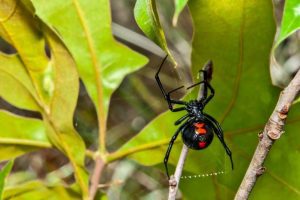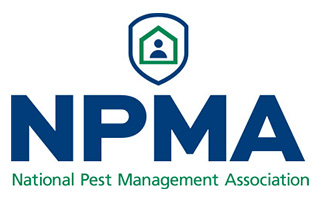SPIDERS CONTROL

Spiders are arthropods and can be found throughout the world. They differ from insects in that they have two, rather than three, body regions; they also have four pairs of legs, while insects have only three pairs of legs. Most spiders have eight simple eyes, but there are some others that have fewer eyes. Many types of spiders spin some type of web, the shape or type of their webs is often as distinctive as the spider itself. Although they have an infamous image, spiders can actually be beneficial for the surrounding environment, as they eat other nuisance insects like mosquitoes and flies. Spiders are voracious predators; they feed on insects, other spiders, and even small mammals and reptiles.
Not sure if you have a spider problem? Or maybe you want to learn more about how spider control works. Check out the following information to clarify some questions you may have.
Library Shortcuts
- Why do I have spiders?
- Should I be concerned about spiders?
- Can I get rid of spiders myself?
- Signs of a spider infestation
- Tips to prevent spiders
Why do I have spiders?
Spiders become more active in autumn due to de the temperature drops and because it is their mating season, so they will leave their webs searching for a mate. Besides, they are generally looking for food. Therefore, one of the main reasons they would get inside your home is because they found a source of food and shelter. Therefore, a spider infestation might indicate an underlying pest problem.
However, there are some other reasons that may be causing spiders to get on your property, some of them may be:
- Damaged window screens
- Cracks and holes in the walls
- Uncleanliness
- Untrimmed plants and grass around the house
Should I be concerned about spiders?
As mentioned before; spiders can be beneficial in the yard or garden by keeping the insect population down, particularly the ones that can spread diseases, such as mosquitoes, flies, fleas, and roaches. Most spiders are harmless and pose little or no threat to humans, but there are some that can be dangerous.
Of the thousands of arachnid species, there are only two that are both aggressive and dangerous to humans: the black widow spider and the brown recluse spider. Black Widow spiders are identified by the red hourglass shape on the underside of their black abdomen. Brown Recluse spiders are distinguished by the violin-shaped marking on the top of their cephalothorax; the body part consisting of the spider’s fused together head and thorax.
If you suspect you’ve received a black widow or brown recluse spider bite, seek medical attention immediately.

Blackwidow

Brown Recluse
Can I get rid of spiders myself?
There are some steps you can take in order to control a small spider infestation in your home. Strong scents and vibrations are the main DIY methods you can use, since they can interfere with spiders’ sophisticated senses, making it hard for them to sense and catch prey. Try the steps listed below:
- Vinegar; mixing white vinegar and water in a spray bottle to spray areas like the garage, basement, or outdoors.
- Essential oils; spiders don’t like some refreshing scents. Mixing essential oils with water and spray some areas where you have noticed spiders. Some scents that spiders don’t like are eucalyptus oil, peppermint oil, lemongrass, citronella, and rosemary.
- Vibrations; continuous vibrations agitate spiders; they can interfere with their ability to detect prey. Loud continuous sounds like music will make them run away and look for a more welcoming place.
- Vacuuming; a vacuum is the most effective tool to remove spider webs and spider eggs in an easy and safe way. Empty the vacuum box in a plastic bag outside the house; you don’t want spider eggs to be blown off.
Signs of a spider infestation
In general, spiders can be found in dark, secluded areas, they can be either in your home or garden. The following are some signs that can help you identify a spider infestation:
- Seeing spiders; if you start seeing spiders, you should know that there are might be more. There are thousands of types of spiders and all of them have different preferences for where they nest. It may just so happen that your home provides them with a perfect environment.
- Spider webs; seeing a couple of spider webs is not a problem. But when you start seeing a lot of them, it could be a clear sign of a spider infestation.
- Egg sacs; most types of spiders lay hundreds of eggs at once, all wrapped up in a silk ball. A thousand spiders can come out of a single egg sac and cause a major infestation. Remove the sacs as soon as possible in order to avoid an infestation.
- Excess flying insects; spiders need plenty of food. If they find a good supply in your home, mainly flying insects, spiders may be drawn to your property.

Tips to prevent spiders
While you are likely to continue to still see an occasional spider, there are some things that you can do to make your home less inviting to them. Try the following tips in order to prevent a spider infestation on your property:
- Sealing; the best way to prevent spiders and other pests from coming into your home is to seal any possible entries. Use caulk or wire mesh at any entries so they cannot crawl in.
- Cleaning; keeping your house cleaned and organized will prevent spiders from finding places to hide in your home and will prevent other insects from crawling around, which could attract spiders.
- Lights out; most insects are attracted to lights, which means spiders would find a good source of food. Switch off outdoor lights at a reasonable time.
- Eliminate hiding places; spiders hide in plants, leaves, and stones. Remove plants from the proximity of your house so they don’t have where to hide.
- Walnuts; for some reason spiders fear walnuts and can’t stand them, placing them in possible entry points will prevent them from coming in.
- Lemon peels; place lemon or lime peels in the corner of your house daily, it is believed the citric nature of the peel itself has a repellent feature.
- Citrus plants; having citrus plants in the garden can reduce the number of spiders entering your property.
Want a Free Estimate?
Need to Schedule Service?
Have a Questions?
WHAT WILL WE DO?
Our spider control process typically consists of the following stages:
- Confirm or discard the existence of spiders in your home through an inspection.
- Identify the factors that may be causing and contributing to the infestation.
- Offer pest control programs to get the problem under control.
- Treat the existing population and prevent future infestations.
What our clients are saying
Our Partners and Awards
Service area
New Jersey:
Ocean County
Essex County
Passaic County
Morris County
Hudson County
Bergen County









